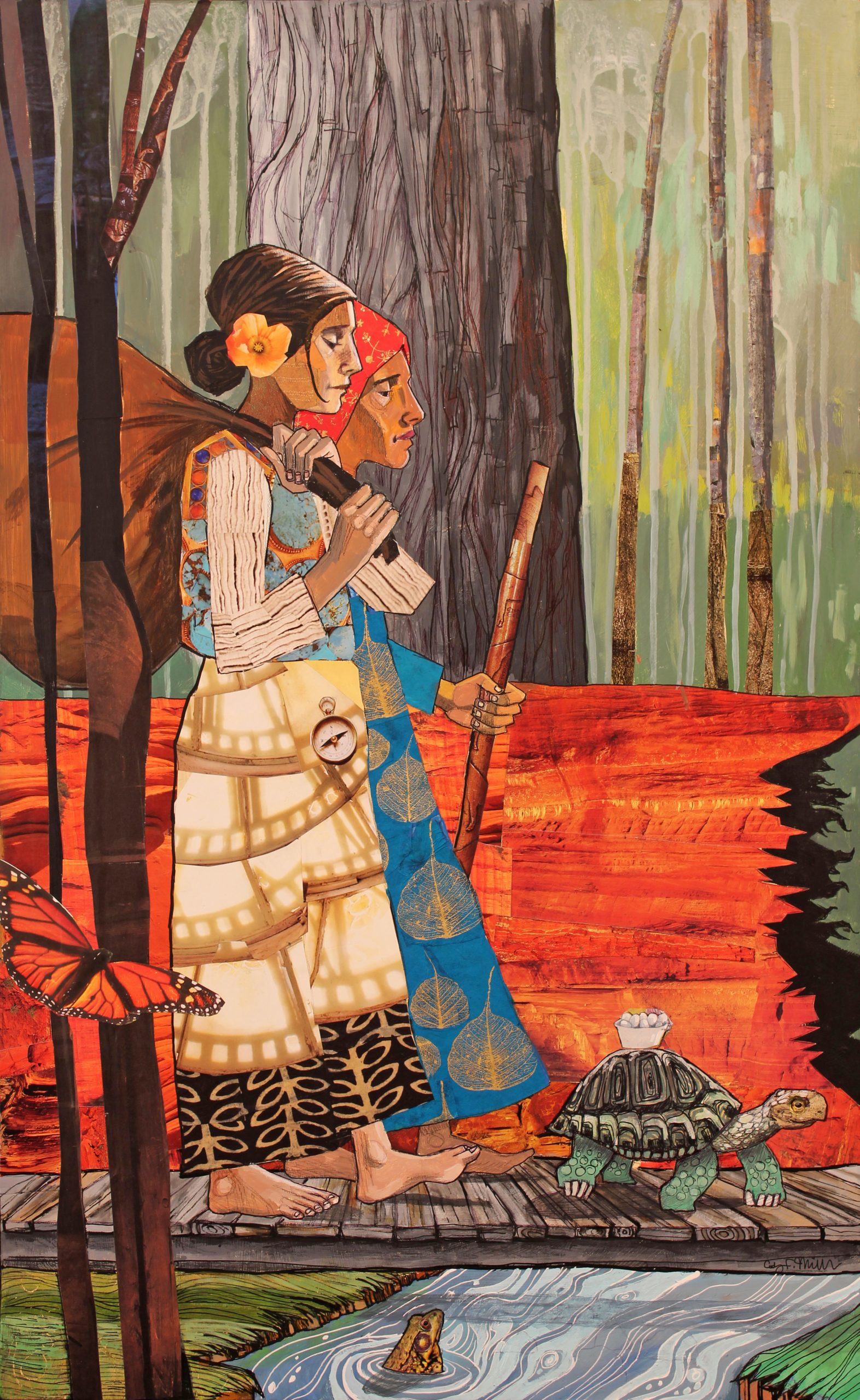What My Grandmothers Taught Me
Lesson Four

Lesson Four: Ruth and Loyal Love
Primary Scripture: Ruth 1–2
The Friendship of Women
I once had a minister who was fond of peppering sermons with mother-in-law jokes. This was a common topic among comedians at the time (it might still be, although I hope not so much these days). I found myself becoming infuriated with these constant denigrations of relationships with women and pointed out to him that he was exposing his own problems with a) his wife’s relatives, and b) women in general. I am happy to report that, aided by his two strong and vocal daughters, he was able and willing to do some solid work on himself in these areas.
Mother-in-law jokes frustrate me because my own mother-in-law was my greatest supporter. Growing up on a farm with many siblings she had missed out on many opportunities. In her family, girls had been taken out of school as soon as possible because education was considered “wasted” on them. She became a master embroiderer and was nationally recognized for her skills—but ironically never by her husband who only acknowledged academic achievement. When I married her son, she was thrilled that I was enrolled in my Bachelor of Theology degree and intended to go on to post graduate studies. She pledged herself to baby-sit for me whenever I needed it, which was often, and with a small group of loyal friends, she ensured that I achieved my goal of earning a PhD.
When I read these first two chapters of Ruth, I see a woman’s story. Many biblical stories are told from the point of view of a man: women are there to serve the aims of men or are only background characters with no function of their own. Indeed, with the addition of the genealogy at the end, even the story of Ruth has been co-opted into a male point of view. However, once the story gets under way in Ruth 1, we are introduced only to women. The scene is intimate, and I feel very close to the emotions expressed here. The weeping women feel the very real pain of separation from loved ones and from the circle of support that has been vital to their flourishing, including the support of shared grief and loss.
The word that binds the women together is hesed. Translated as “kindly” in chapter one, verse eight, I have noted in the study how weak I think that translation is. Don’t get me wrong, I have nothing against kindness! Kindness is a lovely attribute, and the world can do with as much of it as possible. But we can be kind to many people who are not really part of our lives. We can all think of ways in which we act with kindness and then get on with our lives. For instance, when I offer to buy her groceries whenever I shop, I like to think I am kind to the woman, jobless and struggling in our COVID-19 lockdowns, who begs outside my local supermarket.
Hesed, while it certainly involves acts of kindness, is better illustrated by the example of my mother-in-law’s pledge to baby-sit for me for the duration of my studies. Hers was a long-term, sacrificial commitment in which she put my needs ahead of her own: she got out of bed at crazy hours some semesters when she needed to be at my house (a good ¾ hour drive from hers) in time for me to race across the city for a 9am lecture start. In addition to that she usually had my washing done and folded by the time I came home, and she did it all with cheerful good humor. That is hesed; that is loyal love!
I want to stress this, and I told the story of my minister at the beginning of this blog, because stories told by men can sometimes fail to recognize the strength of women’s friendship and care. (This is certainly so in most biblical stories.) But in Ruth, the strength of women’s relationships is celebrated and emphasized by the constant use of relational terms. Ruth and Naomi’s relationship crosses and challenges ethnic boundaries. The overseer in chapter two might call Ruth “the Moabite” but Naomi calls her “my daughter.”
The Psalms love to sing of hesed: the steadfast love of the Lord that never ceases. The book of Ruth demonstrates hesed: the steadfast love of the Lord at work in ways we can relate to, aspire to, and practice in our own family and friendship circles. Ruth also gently challenges us to explore how we might widen our circles to include those in need of such loyal friendship
Merryl L. Blair
author of the 2021-2022 PW/Horizons Bible Study
******
Purchase a What My Grandmothers Taught Me bible study book and study along with us.
Call 800/533-4371 and order product #HZN21100 or order online
